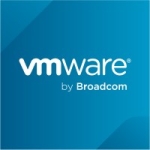The number one feature is the speed; it's InfiniBand. We're serving almost 3.2 million people; it's an eligibility system. We add on 80 TB of data that needs to be churned and processed. Previously, we used Sun Solaris, and then we moved to a Windows platform. It was really bad. We started the load on Tuesday, and sometime around noon on Wednesday it finished. Sometimes, it would crash. Right now, it all finishes within 4.5-5 hours. If it starts at 6 o’clock, it’s done by 9 o’clock. That is one big advantage we see.
The standard Oracle things that we have, such as compression, are also valuable.
Now, all of our development to pre-production – everything – is in one single rack, which is easier for us to do. Production is on another full rack. That's what we use it for.
Pretty much whatever we need from the database side, it is there. There are specific things from the application side. I do not have a list; they do have a list of what you can't see from the database side. Pretty much what we are looking for is part of the 12c that is coming out. Most developers are used to Microsoft .NET and SQL Server. We are all cutting out Oracle, so there is a shift within the developer's mind; how am I going to use it; starting from the modeling to how to use it; key items; for example, I need to have a temporary table to create a gdd; there's an identity column in SQL that automatically fills in, and it used to have triggers.
The 12c is coming. There are some good features coming that I'm looking for. At a conference earlier this year, I was part of the session on what is new in 12c. I'm really excited about that.
We're doing real-time analytics, so one other thing is whether NoSQL is the best fit or not. We need to evaluate that, which we have not done yet. Pretty much, we are thinking that we have Exadata, so we want to use that product.
I have been using it for 3.5-4 years.
It is absolutely a stable solution. After we moved to Exadata, the stability has been good. Number one is, we used to go through Microsoft patching every month. With Exadata and Linux, we only have to do the firmware once per quarter. We try to coordinate that with quarterly Oracle patches. It isn’t really required; we only do it because we are behind two firewalls. We don't have to apply all the patches.
It is absolutely scalable. We have five enterprise applications of our own. They're all public-facing systems. Going back to the performance, on any given day, anywhere between 5,000-8,000 internal people use it, and we do have a public-facing system. People apply for benefits, and it's entirely public, so they can use it. Compared to our previous system, if you look at the performance metrics, some of them show almost 30-40% improvement. Some of the batches are almost 70% improvement.
If you look at the backend side – logical export backups, RMANs, and disaster recovery; all of those things – there is a tremendous increase.
Technical support is pretty good. There are certain areas specific to the enterprise application where we might not be getting Oracle support. But for Oracle products, it is pretty good.
We brought Oracle in to set it up, so it still is with Oracle. We didn't go through the entire setup process because Oracle was part of it. Oracle itself did it, so it was pretty easy for us. Again, one good thing is, we don't have to really worry about the patching, OS levels, and other stuff. It is pretty easy for us.
There are still a few issues that we are working on, but from a performance point of view, ease of use, scalability and reliability, plus we took a performance option for the storage – we were at capacity, so now we are good with the capacity, too – overall, I feel like everybody is happy with the product.
When I am looking at vendors like Oracle, the primary criteria will be the support. When you go through an issue, we need an immediate solution; it’s a 24/7 application. We don't anticipate anything. For example, something like, when we were going through a patching, and suddenly I found an issue. I didn’t see it in my lower environments, and now my production is impacted. We created a severity one ticket. How soon? And can I trust it? That's number one.
There may be some custom solutions we may be looking at, but it's not part of the product. Depending on what type of solution it is, we might need additional support and also training. I think Oracle is growing. I've been using Oracle since 1991, so I know how much it grew outside the database. Training is one of the biggest issues that we are having. We moved from a Windows platform to a Linux platform. Also, how to manage the entire thing; Enterprise Manager completely changed. One is self-learning, another one is vendor-provided, low-cost training. Those are the things we are looking for.
On top of that, you can say there are certain things that can benefit us; there is a new release coming out. If they can provide another training session, like, "Hey, this worried us, and here are the documents." Something like that would really help our DBAs to be at the cutting edge, rather than they themselves having to explore. Those are all things.















